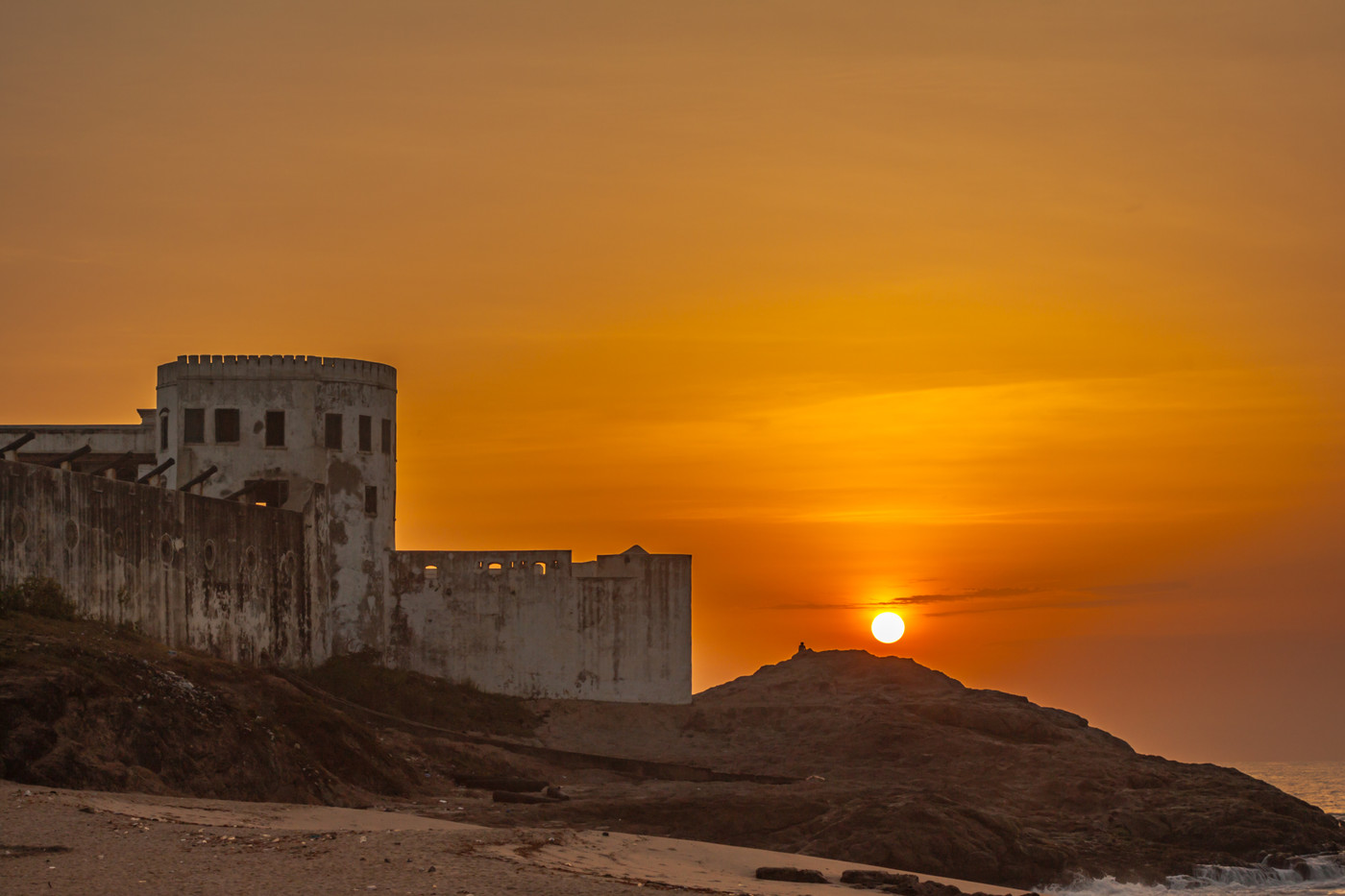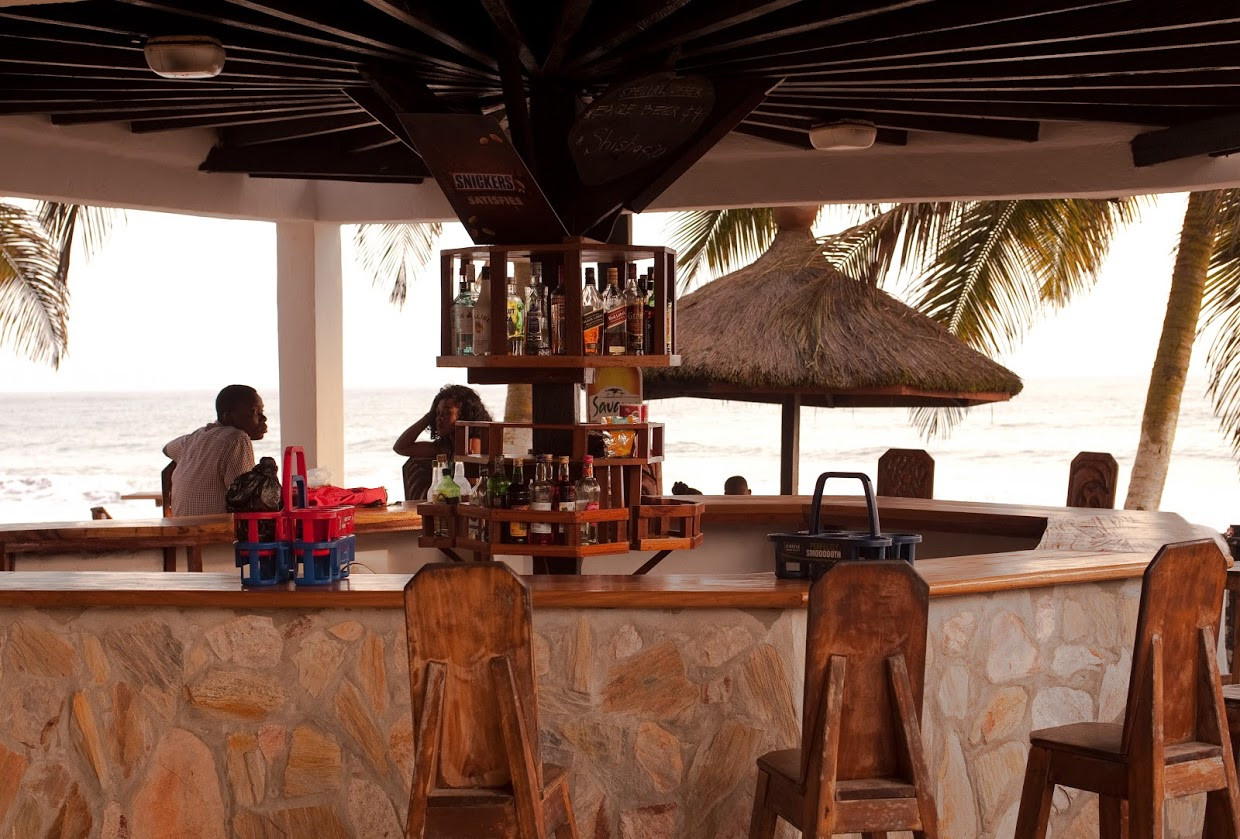The first time I visited Cape Coast Castle was in 2019. Ghana invited African descendants back home to reconnect with our roots, and I spent months planning to experience all that was awaiting me on the other side of the Atlantic. While the local bars and restaurants were high on my list, I knew that my first trip to West Africa wouldn’t be complete without tracing the steps of my ancestral past.
Like most Black Americans, my roots in the U.S. are generations deep. I was born in Baltimore, just like my parents and grandparents were. Before that? We were from the South: Georgia and North Carolina. And before that? Well, I’ve never really known life beyond these borders. I am rooted in all the beautiful things that make Black American culture so rich. Fish fries and cookouts. Line dances and hip hop. Poetry and jazz music. Beyonce and Billie Holiday. Although America has given Black folks so many reasons to want to abandon this land, there are countless reasons to stay.
When I was younger, not having a direct connection to Africa bothered me. But as I’ve gotten older, I’ve only grown deeper in love with who we became once we were brought here. I’m incredibly proud of my culture, but I’ve also come to believe that it’s a birthright for all Black travelers to visit West Africa— specifically Ghana— at least once in their lifetime.
Learn Your True History

In America, Black history is taught in a vacuum. The narrative that schools teach about our history is usually whitewashed, taught solely as an elective—never a part of the core curriculum—and often only once a year. Despite the undeniable contributions Black people have made to this country (and the world), Black stories continue to be erased. For some, this historical blockade to knowledge has led to a deep longing for the truth. Black travelers use travel as a tool for finding our way back to ourselves. Back to the parts of our history that we were never taught.
In Cape Coast, Ghana, both Cape Coast and Elmina Castles stand dotted along the Atlantic ocean. Cape Coast Castle was once controlled by Portugal, Sweden, the Netherlands, and Britain. The sprawling white structure was one of about 40 “slave castles” in the area: a holding place for enslaved people before being sold onto ships. Back then, it was a dungeon of terror and death. Today, it’s a remnant of a damning past. Just 13 kilometers away is Elmina Castle, the older of the two. The Dutch seized control in 1637, and over 30,000 enslaved Africans passed through Elmina’s castle alone every year.
It’s hard to describe, but there is no other feeling comparable to the pride that fell onto my shoulders when I finally returned to the shores I was never meant to see again. No matter which castle you visit, both can be transformative experiences and shouldn’t be missed.
Today, Cape Coast is a lively fishing port city in the central region of Ghana. Despite its harrowing history, there is a unique sense of community and belonging shared by locals and Black travelers visiting. Cape Coast is home to over thirty-two festivals. One of its largest, Panafest, is a theatre festival that began in the 1980s to examine the longstanding effects of the slave trade. The festival is rooted in the pan-Africanist ideologies of W.E.B. DuBois. Panafest seeks to bridge the gap between Africans on the continent and the diaspora.
Eat Like Your Ancestors

It’s no secret that, with enslavement, came the dissolution of our culture— including our food. Despite the transatlantic journey and stripping of our culture, many of our foodways actually survived. The food we love may look a little different than it once did, but much of modern Black American cuisine derives from West African dishes.
The jollof rice and red snapper I devoured at Oasis Beach Resort in Cape Coast could have easily been a plate of dirty rice and fried catfish, like the ones I’ve eaten countless times in New Orleans.
One of the most authentic experiences I had on my trip happened when I was sitting down at a local chop bar (a restaurant serving local dishes) near Elmina Castle. At the African Pot, I dove hands-first into my first bowl of a spicy light soup with tilapia, goat, and okra— a food my mother cooked often growing up. Indulging in dishes that my soul knew, though I’d never tasted some of them before, made me feel like I was right where I was supposed to be. Eating my way through my ancestry— a delicious birthright.
Soak in the Beauty

When you first visit Elmina castle, you’ll probably notice the scarring on the walls. Of course, the structure is hundreds of years old, but its cracks still feel like a painful reminder of what once was. The guides will walk you through the quarters, pointing out where colonizers left our ancestors in inhumane conditions. They were confined to small spaces with tiny windows and forced to defecate, and even bleed, in close proximity to one other. Those walls are forever tainted with our ancestor’s blood, but the return was strangely beautiful, even joyous.
I’ll always remember what it was like the first time I visited Cape Coast Castle at sunset. We’d trekked through endless reminders of our collective pain until the tour ended on the rooftop of the castle, and the sun lit up the sky in an orange hue that felt like a warm, welcome home. While the castle is my favorite viewpoint, Orange Beach Resort, located just steps from the ocean, is a great spot to witness the glow of Ghana too.
Beyond the sunsets, the region itself is vast and surrounded by the bluest waters. At the foot of the castle, there are gorgeous wooden fishermen boats, and it’s common to see groups of children playing soccer on the sand next to the fort. Visiting Cape Coast isn’t all sorrow, and it remains a vibrant city, despite its past.
Remind Yourself of Your Power

I’m endlessly proud of the power of our people. We’ve been weathering storms of colonization, racism, hate, and injustice for centuries, and still, we thrive. It’s one thing to make our way through this world merely surviving, but to do it with such a high level of excellence and grace is something uniquely Black. Time and time again, our human rights are infringed upon, and despite our excellence, this can leave some feeling powerless.
While the slave “castles” in Ghana are no magic utopia that will suddenly make all of your dreams and aspirations come to fruition, there’s a deep power in witnessing the resilience of our people up close. Walking throughout the dungeons —some of which still seem to have a bloody stench—and standing in cells where they were held captive let us know there is nothing we are incapable of conquering.
For an added reminder of who we truly are, book a tour that includes a traditional Ghanaian naming ceremony. An elder speaks reassuring words over you before renaming you by your soul name based on the day of the week you were born. Reclaiming the names stripped from us is a powerful reminder of who we’ve always been. The castles, like us, have been through the unbearable— but they’re still standing. They’re a physical reminder of our unshakeable place in the world.